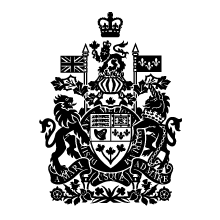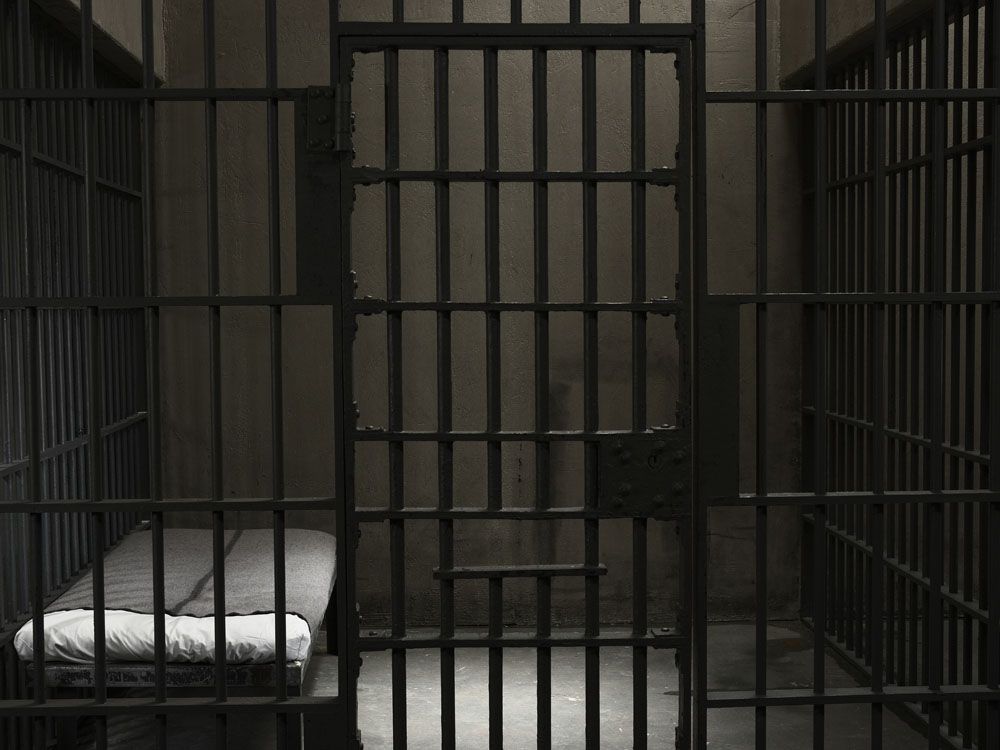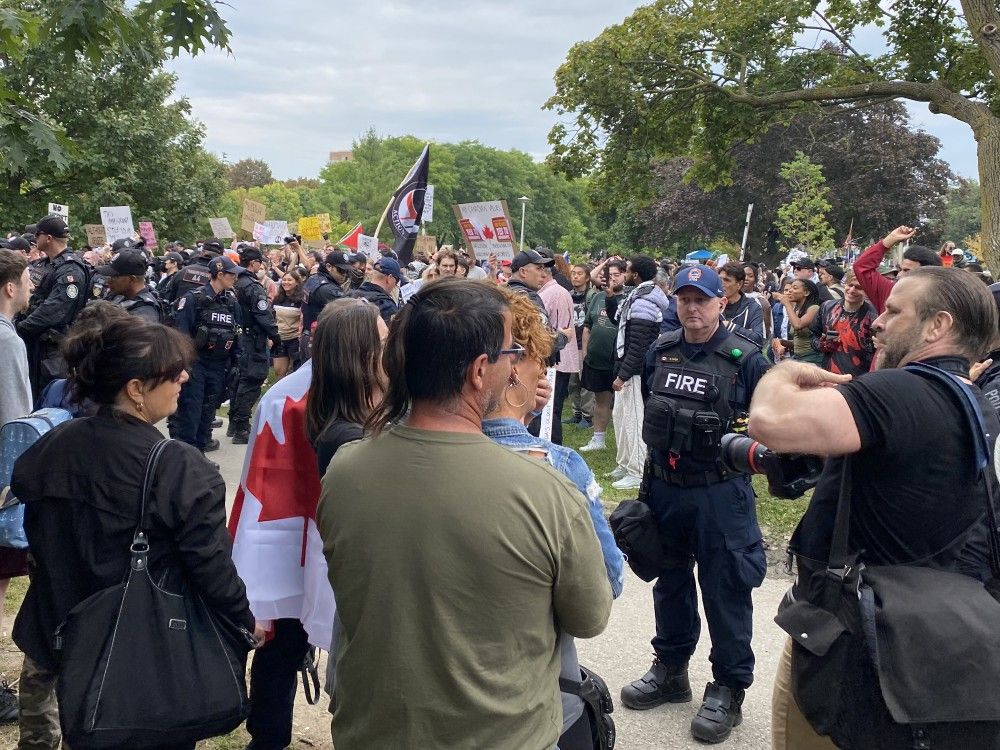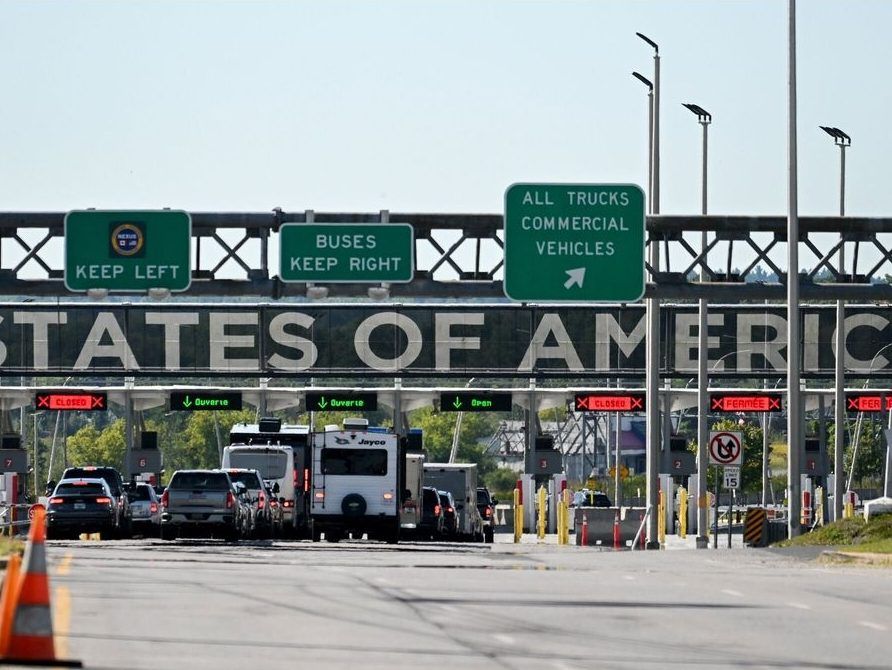Our asylum system is being abused and needs to change fast
Canada's system for helping refugees is overrun and in need of an overhaul, will the Carney government act?
Author of the article:Brian Lilley
Published Aug 28, 2025 • 3 minute read
If all of the people waiting for their asylum claim to be heard right now were gathered in one place, they would form a city bigger than Kitchener, Regina or Burnaby. It’s just another example of the mess the Liberals have created with our once well-functioning and well-respected immigration and refugee system.
According to the latest government figures, there are 287,786 people waiting to have their asylum claim heard.
On Friday, ministers responsible for immigration in provincial governments across the country will have a virtual meeting with their federal counterpart Lena Metlege Diab. Fixing the asylum system, along with problems with the temporary foreign workers, reducing the number of permanent residents and dealing with illegal immigration are all topics on the table.
Getting a handle on the asylum system must be a priority because right now it is being abused, used as a backdoor into Canada, rather than a system to protect those fleeing war or persecution.
As one example, in 2015 we had just 16,592 asylum claims compared to 55,093 in the first six months of 2025 and 190,039 people claiming asylum last year. Back in 2015, the backlog for cases being heard was just 9,999, not close to 300,000.
Last year, we had 32,563 people claim asylum from India and almost 10,000 in the first six months of this year. India is a fellow democracy with a growing economy. It has challenges, yes, but we should not be seeing a small city of asylum claims from India.
The same holds true for Mexico, a NAFTA partner, a fellow democracy and a regular source of abuse for our asylum system.
In 2010, the Harper government brought in massive changes to the asylum system and Canada’s visa policy. In part it was to deal with false claims being made by people coming into Canada from places like Mexico and Hungary.
Those visa requirements for Mexican nationals effectively shut off the flow of thousands of people falsely claiming asylum from that country. In early 2016 though, the Trudeau government dropped that visa requirement and the flow is people coming north to claim asylum in Canada grew steadily until we saw 25,236 arrive in 2023.
New visa requirements were introduced in February 2024, yet we still saw more than 12,000 asylum claims last year from Mexico and 2,700 in the first six years of 2025.
Our system, meant to help real refugees, is clearly being abused. Just look at the 254 Americans who have claimed asylum so far this year.
The answer to this problem and the backlog isn’t to just speed up processing times. Though that is needed, we need to restructure our system.
Right now, we incentivize people to come to Canada and make fake claims by not having proper guardrails in place such as visa requirements. We incentivize people to come here through the asylum system because they know they can get a work permit and generous benefits, including health care, almost immediately.
Federal health coverage for asylum seekers cost roughly $60 million in 2016 but the government’s latest figures show a cost of $590,405,500 in fiscal year 2023-24.
The federal government has also spent billions on housing for asylum claimants over the past few years from hotel and motel rooms to rent subsidies. Costs also fall on municipalities such as Toronto where at times more than 50% of the city’s roughly 10,000 shelter beds have been occupied by asylum seekers.
The cost to the Ontario government, where one in four welfare recipients is an asylum seeker, is approximately $500 million per year.
The way the system is being run right now is not sustainable and needs to change. The question is whether the Liberals have the will power to change a system they believe is compassionate instead of flawed.
 canada.ca
canada.ca

 torontosun.com
torontosun.com
Canada's system for helping refugees is overrun and in need of an overhaul, will the Carney government act?
Author of the article:Brian Lilley
Published Aug 28, 2025 • 3 minute read
If all of the people waiting for their asylum claim to be heard right now were gathered in one place, they would form a city bigger than Kitchener, Regina or Burnaby. It’s just another example of the mess the Liberals have created with our once well-functioning and well-respected immigration and refugee system.
According to the latest government figures, there are 287,786 people waiting to have their asylum claim heard.
On Friday, ministers responsible for immigration in provincial governments across the country will have a virtual meeting with their federal counterpart Lena Metlege Diab. Fixing the asylum system, along with problems with the temporary foreign workers, reducing the number of permanent residents and dealing with illegal immigration are all topics on the table.
Getting a handle on the asylum system must be a priority because right now it is being abused, used as a backdoor into Canada, rather than a system to protect those fleeing war or persecution.
As one example, in 2015 we had just 16,592 asylum claims compared to 55,093 in the first six months of 2025 and 190,039 people claiming asylum last year. Back in 2015, the backlog for cases being heard was just 9,999, not close to 300,000.
Last year, we had 32,563 people claim asylum from India and almost 10,000 in the first six months of this year. India is a fellow democracy with a growing economy. It has challenges, yes, but we should not be seeing a small city of asylum claims from India.
The same holds true for Mexico, a NAFTA partner, a fellow democracy and a regular source of abuse for our asylum system.
In 2010, the Harper government brought in massive changes to the asylum system and Canada’s visa policy. In part it was to deal with false claims being made by people coming into Canada from places like Mexico and Hungary.
Those visa requirements for Mexican nationals effectively shut off the flow of thousands of people falsely claiming asylum from that country. In early 2016 though, the Trudeau government dropped that visa requirement and the flow is people coming north to claim asylum in Canada grew steadily until we saw 25,236 arrive in 2023.
New visa requirements were introduced in February 2024, yet we still saw more than 12,000 asylum claims last year from Mexico and 2,700 in the first six years of 2025.
Our system, meant to help real refugees, is clearly being abused. Just look at the 254 Americans who have claimed asylum so far this year.
The answer to this problem and the backlog isn’t to just speed up processing times. Though that is needed, we need to restructure our system.
Right now, we incentivize people to come to Canada and make fake claims by not having proper guardrails in place such as visa requirements. We incentivize people to come here through the asylum system because they know they can get a work permit and generous benefits, including health care, almost immediately.
Federal health coverage for asylum seekers cost roughly $60 million in 2016 but the government’s latest figures show a cost of $590,405,500 in fiscal year 2023-24.
The federal government has also spent billions on housing for asylum claimants over the past few years from hotel and motel rooms to rent subsidies. Costs also fall on municipalities such as Toronto where at times more than 50% of the city’s roughly 10,000 shelter beds have been occupied by asylum seekers.
The cost to the Ontario government, where one in four welfare recipients is an asylum seeker, is approximately $500 million per year.
The way the system is being run right now is not sustainable and needs to change. The question is whether the Liberals have the will power to change a system they believe is compassionate instead of flawed.
CIMM – Interim Federal Health Program – November 25, 2024 - Canada.ca
CIMM – Interim Federal Health Program – November 25, 2024

LILLEY: Our asylum system is being abused and needs to change fast
According to the latest government figures, there are 287,786 people waiting to have their asylum claim heard.





